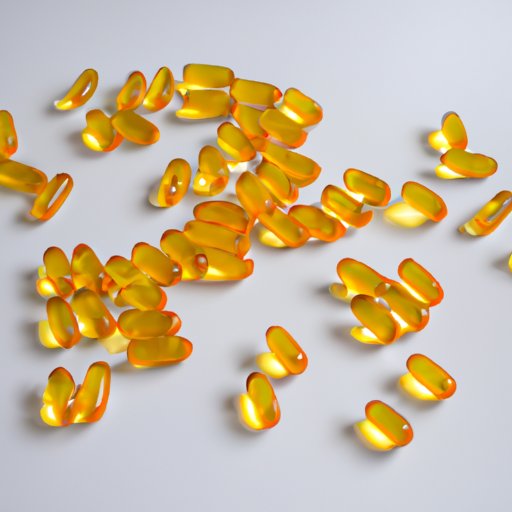
I. Introduction
As a parent, you want to ensure your baby is healthy and developing properly. One important nutrient for babies is vitamin D, which is essential for strong bones and overall growth. But what if you haven’t been giving your baby vitamin D and now you’re wondering if it’s too late? This article will explore the importance of vitamin D for babies, why it’s never too late to start supplementation, and how to ensure your baby is getting enough.
II. The Importance of Vitamin D for Babies: Why It is Never Too Late
Vitamin D is a crucial nutrient for babies, as it helps the body absorb calcium and phosphorus necessary for healthy bone growth and development. A lack of vitamin D can lead to a number of serious health complications, including rickets, weakened bones, and other developmental delays. It’s never too late to start giving your baby vitamin D, as it can help prevent deficiency and promote good health.
III. Can I Start Giving My Baby Vitamin D Late? The Answer May Surprise You
Many parents may wonder if it’s too late to start giving their baby vitamin D, especially if their baby is older and hasn’t been receiving supplementation. While it’s important to start as soon as possible to avoid deficiency, it’s never too late to begin. There are different forms of vitamin D supplements available, such as drops or chewable tablets, and your pediatrician can help you choose the right one for your baby’s needs.
IV. The Risks of Vitamin D Deficiency in Babies and How to Correct It
Vitamin D deficiency in babies can have long-term effects on their health, including developmental delays, autoimmune disorders, and other complications. It’s important for parents to be aware of the risks of deficiency and take steps to correct it. This may include vitamin D supplementation, sunlight exposure, and a balanced diet. Your pediatrician can help you determine the best course of action to ensure your baby is getting enough vitamin D.
V. Understanding the Recommended Dosage for Vitamin D in Babies: A Guide for Parents
The recommended dosage for vitamin D supplementation in babies varies depending on age and other factors. The American Academy of Pediatrics recommends a daily dose of 400 IU of vitamin D for all babies, starting from the first few days of life. There are different strengths of vitamin D supplements available, from 400 IU drops to 1000 IU chewable tablets, and your pediatrician can help you determine the appropriate dosage for your baby. It’s important not to exceed the recommended dosage, as too much vitamin D can be harmful.
VI. How to Ensure Your Baby Gets Enough Vitamin D, Even If You’re Starting Late
While it’s best to start vitamin D supplementation as early as possible, there are still ways to ensure your baby is getting enough even if you’re starting late. In addition to supplements, certain foods are rich in vitamin D, such as fortified cereals, fatty fish, and egg yolks. Sunlight exposure can also help the body produce vitamin D, but it’s important to limit exposure and take precautions to avoid sunburn. Parents should work with their pediatrician to monitor their baby’s vitamin D levels and adjust supplementation as needed.
VII. Conclusion
Vitamin D is a critical nutrient for babies, and it’s never too late to start supplementing. Deficiency can lead to serious health complications, but taking steps such as supplementation, sunlight exposure, and eating a balanced diet can help ensure your baby is getting enough. Talk to your pediatrician about the appropriate dosage and ways to monitor your baby’s vitamin D levels, and take action today to promote your baby’s healthy growth and development.





